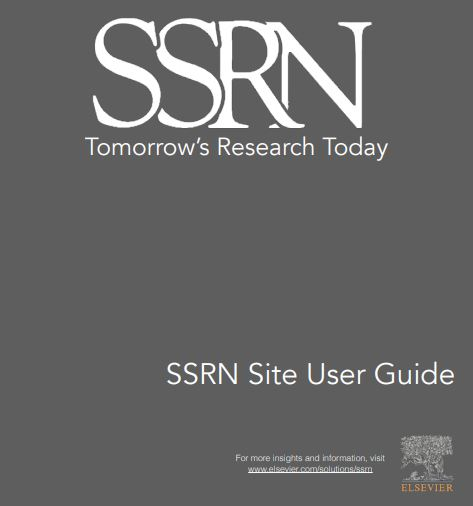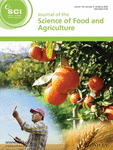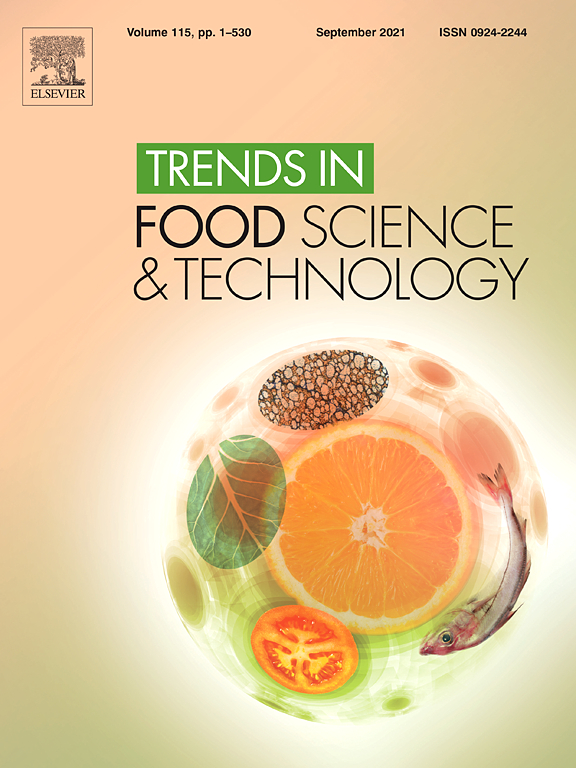Carotene
How to submit an article:
- Registered users can submit any published journal article that has a unique DOI (Digital Object Identifier) name or link to Research Hub.
- For example, you can paste the full DOI link:
https://doi.org/10.1109/5.771073or just the DOI name:10.1109/5.771073into the field above and click submit. - The person who is first to submit a valid article to Research Hub will forever be credited for it, and every article submission earns you +6 Research Points.
Related Topics
Published research studies are articles that present the findings of original research that has undergone a peer-review process and has been made publicly available in scholarly journals, books or other media.

Carrot intake is consistently negatively associated with cancer incidence: A systematic review and meta-analysis of prospective observational studies
2023 Dec 17 Critical Reviews in Food Science and Nutrition Ojobor CC, O’Brien GM, Siervo M, Ogbonnaya C, Brandt K
Meta-Analysis Systematic Review Cancer CarrotConsuming carrots can significantly decrease the risk of cancer.

Carrot Intake is Consistently Negatively Associated with Cancer Incidence: A Systematic Review and Meta-Analysis of Prospective Observational Studies
2023 Jan SSRN Electronic Journal Ojobor CC, O'Brien GM, Siervo M, Ogbonnaya C, Brandt K
Systematic Review Meta-Analysis CarrotCarrot consumption, beyond its β- and α-carotene content, significantly reduces cancer risk, highlighting polyacetylenes as potential anti-cancer agents, urging active promotion of carrot intake.

Carrot and carotene and multiple health outcomes: an umbrella review of the evidence
2023 Jan 17 Journal of the Science of Food and Agriculture Yi X, Li J, Liao D, Peng G, Zheng X, Xu H, et al.
Review Article Cataracts Carotene Lung Cancer Carrot Anticancer Stomach Cancer Breast Cancer Alzheimer's Disease Urothelial Cancer SunburnCarrot and carotene consumption could diminish the risk of a wide range of negative health consequences, including multiple types of cancer.

Critical review on the immunomodulatory activities of carrot’s β-carotene and other bioactive compounds
2022 Dec Journal of Functional Foods Anjani G, Ayustaningwarno F, Eviana R
Review Article Carrot Oxidative Stress Carotene Anti-Inflammatory ImmunomodulationCarrot's bioactive compounds can regulate immune response, reduce oxidative stress, and prevent damaging oxidative destruction, making it a potential preventive tool for various diseases.

Association of Dietary Carrot/Carotene Intakes With Colorectal Cancer Incidence and Mortality in the Prostate, Lung, Colorectal, and Ovarian Cancer Screening Trial
2022 Jun 17 Frontiers in Nutrition Jiang Z, Chen H, Li M, Wang W, Fan C, Long F
Cohort Study Carotene Colorectal Cancer CarrotModerate consumption of carrots is associated with a lower incidence of colorectal cancer, implying a potential cancer prevention effect in a certain dose-range.
Research insights are moderated by the Research Hub team and offer an at-a-glance overview of interesting research findings.

2023 Critical Reviews in Food Science and Nutrition
Consuming carrots can significantly decrease the risk of cancer.
Meta-Analysis Cancer Carrot
Carrot intake is consistently negatively associated with cancer incidence: A systematic review and meta-analysis of prospective observational studies
Ojobor CC, O’Brien GM, Siervo M, Ogbonnaya C, Brandt K

2023 Journal of the Science of Food and Agriculture
Carrot and carotene consumption could diminish the risk of a wide range of negative health consequences, including multiple types of cancer.
Review Article Alzheimer's Disease Anticancer Breast Cancer Carrot Cataracts
Carrot and carotene and multiple health outcomes: an umbrella review of the evidence
Yi X, Li J, Liao D, Peng G, Zheng X, Xu H, et al.

2023 SSRN Electronic Journal
Carrot consumption, beyond its β- and α-carotene content, significantly reduces cancer risk, highlighting polyacetylenes as potential anti-cancer agents, urging active promotion of carrot intake.
Systematic Review Carrot
Carrot Intake is Consistently Negatively Associated with Cancer Incidence: A Systematic Review and Meta-Analysis of Prospective Observational Studies
Ojobor CC, O'Brien GM, Siervo M, Ogbonnaya C, Brandt K

2022 Journal of Functional Foods
Carrot's bioactive compounds can regulate immune response, reduce oxidative stress, and prevent damaging oxidative destruction, making it a potential preventive tool for various diseases.
Review Article Anti-Inflammatory Carrot Immunomodulation Oxidative Stress
Critical review on the immunomodulatory activities of carrot’s β-carotene and other bioactive compounds
Anjani G, Ayustaningwarno F, Eviana R

2022 Frontiers in Nutrition
Moderate consumption of carrots is associated with a lower incidence of colorectal cancer, implying a potential cancer prevention effect in a certain dose-range.
Cohort Study Carrot Colorectal Cancer
Association of Dietary Carrot/Carotene Intakes With Colorectal Cancer Incidence and Mortality in the Prostate, Lung, Colorectal, and Ovarian Cancer Screening Trial
Jiang Z, Chen H, Li M, Wang W, Fan C, Long F
Review Articles
Review articles summarise and critically evaluate the current state of research on a specific topic or field by synthesising multiple primary research studies.

Carrot intake is consistently negatively associated with cancer incidence: A systematic review and meta-analysis of prospective observational studies
2023 Dec 17 Critical Reviews in Food Science and Nutrition Ojobor CC, O’Brien GM, Siervo M, Ogbonnaya C, Brandt K
Meta-Analysis Systematic Review Cancer CarrotConsuming carrots can significantly decrease the risk of cancer.

Carrot Intake is Consistently Negatively Associated with Cancer Incidence: A Systematic Review and Meta-Analysis of Prospective Observational Studies
2023 Jan SSRN Electronic Journal Ojobor CC, O'Brien GM, Siervo M, Ogbonnaya C, Brandt K
Systematic Review Meta-Analysis CarrotCarrot consumption, beyond its β- and α-carotene content, significantly reduces cancer risk, highlighting polyacetylenes as potential anti-cancer agents, urging active promotion of carrot intake.

Carrot and carotene and multiple health outcomes: an umbrella review of the evidence
2023 Jan 17 Journal of the Science of Food and Agriculture Yi X, Li J, Liao D, Peng G, Zheng X, Xu H, et al.
Review Article Cataracts Carotene Lung Cancer Carrot Anticancer Stomach Cancer Breast Cancer Alzheimer's Disease Urothelial Cancer SunburnCarrot and carotene consumption could diminish the risk of a wide range of negative health consequences, including multiple types of cancer.

Critical review on the immunomodulatory activities of carrot’s β-carotene and other bioactive compounds
2022 Dec Journal of Functional Foods Anjani G, Ayustaningwarno F, Eviana R
Review Article Carrot Oxidative Stress Carotene Anti-Inflammatory ImmunomodulationCarrot's bioactive compounds can regulate immune response, reduce oxidative stress, and prevent damaging oxidative destruction, making it a potential preventive tool for various diseases.

Nutritional and phytochemical characterization of radish (Raphanus sativus): A systematic review
2021 Jul Trends in Food Science & Technology Sham, T. T., Yuen, A. C., Ng, Y. F., et al.
Systematic ReviewFrom the results of 63 papers on the nutritional and phytochemical composition of Raphanus sativus, our review identified 609 phytochemicals in radish, with major constituents like flavonoids, non-flavonoid polyphenols, fat and fatty related compounds, terpenes and derivatives, and glucosinolates being reported in high concentrations in leaves and sprouts.
Clinical Trials
Clinical trials are research studies that involve people and are conducted to evaluate the safety and efficacy of new treatments or interventions, such as drugs, medical devices, or behavioural therapies.
Study Protocols
Published study protocols are detailed plans that outline the objectives, methodology, statistical analyses, and organisation of a research study that have been made publicly available for others to review and use as a reference.
Presentation Slides

Meta-Analysis
Consuming carrots can significantly decrease the risk of cancer.
Ojobor CC, O’Brien GM, Siervo M, Ogbonnaya C, Brandt K

Review Article
Carrot and carotene consumption could diminish the risk of a wide range of negative health consequences, including multiple types of cancer.
Yi X, Li J, Liao D, Peng G, Zheng X, Xu H, Zhang T, Ai J

Systematic Review
Carrot consumption, beyond its β- and α-carotene content, significantly reduces cancer risk, highlighting polyacetylenes as potential anti-cancer agents, urging active promotion of carrot intake.
Ojobor CC, O'Brien GM, Siervo M, Ogbonnaya C, Brandt K

Review Article
Carrot's bioactive compounds can regulate immune response, reduce oxidative stress, and prevent damaging oxidative destruction, making it a potential preventive tool for various diseases.
Anjani G, Ayustaningwarno F, Eviana R

Cohort Study
Moderate consumption of carrots is associated with a lower incidence of colorectal cancer, implying a potential cancer prevention effect in a certain dose-range.
Jiang Z, Chen H, Li M, Wang W, Fan C, Long F

Systematic Review
From the results of 63 papers on the nutritional and phytochemical composition of Raphanus sativus, our review identified 609 phytochemicals in radish, with major constituents like flavonoids, non-flavonoid polyphenols, fat and fatty related compounds, terpenes and derivatives, and glucosinolates being reported in high concentrations in leaves and sprouts.
Sham, T. T., Yuen, A. C., Ng, Y. F., Chan, C. O., Mok, D. K., & Chan, S. W.

Review Article
Phytochemicals in carrots, particularly carotenoids, are effective at reducing eyesight degeneration and treating chronic eye defects due to their antioxidant and anti-inflammatory properties.
Taiwo EA, Abdulkareem TT, Fajemisin E
Executive Summary
Write an executive summary in the form of a blog article on the topic of "Research into Chinese medicine treatment for Carotene" summarising the research below and using language that can be easily understood by patients and avoiding medical jargon using a professional and caring tone of voice.
Write an executive summary in the form of a blog article on the topic of "Researched Chinese medicine treatments for Carotene" summarising the research below in an objective and easy to understand way, and using language that can be easily understood by patients. Group the article into Chinese medicine treatments first, followed by nutrition and other treatments. Avoid using medical jargon and use a professional and caring tone of voice.
Write me a concise but easy to understand executive summary on the topic of "Chinese medicine treatments for Carotene" based on the following research that I will give you. Your summary should be 2 paragraphs long in Australian English spelling and include references to the studies.
A Meta-Analysis published in 2023 in the journal Critical Reviews in Food Science and Nutrition found that Consuming carrots can significantly decrease the risk of cancer. The methodology used in this research involved examining the links between carrot intake and the incidence of cancer. The scope was broad, examining all studies published before June 2022 that offered risk estimates connecting cancer incidence with either carrot consumption, α-carotene intake, or α-carotene plasma levels. Possible sources of such studies included those found via digital searches, manually identified within other studies, or garnered from existing reviews. Analysis was carried out comparing the highest and lowest reported intakes from prospective studies, estimating summary relative risks using a random-effects model. The study's results indicated a strong correlation between carrot consumption and a notable reduction in cancer risk. This conclusion was derived from the analysis of 198 observational studies, 50 of which were prospective studies involving a total of 52,000 cases that specifically recorded carrot intake. Comparatively, on the correlation between α-carotene plasma levels and cancer risk, analysis from 30 prospective studies with 9,331 cases indicated that a higher presence of α-carotene also resulted in decreased cancer risk. Despite a moderate variance between studies, these findings serve as significant evidence in support of the anticancer benefits of carrots.
A Review Article published in 2023 in the journal Journal of the Science of Food and Agriculture found that Carrot and carotene consumption could diminish the risk of a wide range of negative health consequences, including multiple types of cancer. An umbrella review methodology was adopted to identify connections between carrot and carotene intake and various health outcomes. We turned to databases such as Web of Science, PubMed, and Embase to find the needed data. The analysis included the collected evidence from both interventional and observational studies that focused on carrots, carotene, and any related health impact. To estimate the summary effect size for each correlation, both random and fixed effects models were employed. The study reviewed a total of 1329 studies and utilized the data from 30 meta-analyses with 26 health outcomes that fit the eligibility requirements. These featured outcomes related to various types of cancer, fractures, age-related cataract, sunburn, and Alzheimer's disease. The associations were analyzed between the health outcomes and the intake of carrots, intake of carotene, and serum carotene levels.
A Systematic Review published in 2023 in the journal SSRN Electronic Journal found that Carrot consumption, beyond its β- and α-carotene content, significantly reduces cancer risk, highlighting polyacetylenes as potential anti-cancer agents, urging active promotion of carrot intake. The study conducted a comprehensive search across various databases for studies published until June 9, 2022, exploring the relationship between carrot intake, α-carotene intake, α-carotene plasma concentration, and cancer incidence. Involving 198 observational studies, the systematic review identified 50 prospective studies (52,000 cases) linking carrot intake (directly or as α-carotene) to a substantial reduction in cancer risk (RR 0.90, 95% CI 0.87–0.94, P < 0.0001). Additionally, 30 prospective studies (91,331 cases) examining plasma α-carotene levels revealed a similarly significant risk reduction (RR 0.80, 95% CI 0.72–0.89, P < 0.0001), with moderate inter-study heterogeneity (I2 = 36% and 26%) and nonsignificant interaction with cancer types. The findings emphasize the robust association between carrot consumption and decreased cancer risk, urging active encouragement of carrot intake. While α-carotene was used as a marker, the study suggests the need for further investigations into non-carotene-focused hypotheses to understand the underlying mechanisms of this association.
A Review Article published in 2022 in the journal Journal of Functional Foods found that Carrot's bioactive compounds can regulate immune response, reduce oxidative stress, and prevent damaging oxidative destruction, making it a potential preventive tool for various diseases. In this literature review, mechanisms were proposed for how the antioxidant properties of carrot’s β-carotene and other bioactive compounds, such as phenolic acid, flavonoid, polyacetylene, and ascorbic acid could modulate the immune system. These proposals were centered around three main paths: anti-inflammatory response modulation, antioxidant response modulation, and overall immune response modulation (which involves both innate and adaptive responses). In the discussion of results, it was revealed that the bioactive compounds in carrots have the ability to regulate pro-inflammatory and anti-inflammatory cytokines, and are also capable of reducing oxidative stress. This was shown by the decrease in the accumulation of reactive oxygen species and an increase in antioxidant capacity, which collaboratively helps to minimize destructive oxidative destruction. Additionally, these compounds influenced immune components, specifically via the regulation of leukocytes, antigens, immunoglobulins, and histamine levels. As a result, carrots were defined as a functional food source capable of immune modulation and potential prevention and treatment for a range of diseases.
A Cohort Study published in 2022 in the journal Frontiers in Nutrition found that Moderate consumption of carrots is associated with a lower incidence of colorectal cancer, implying a potential cancer prevention effect in a certain dose-range. The research analysed the dietary intake of carrots/carotene and their relationship to colorectal cancer incidence and mortality in a cohort from the Prostate, Lung, Colorectal, and Ovarian Cancer Screening. The study involved 101,680 participants who joined the cohort between November 1993 and July 2001. The hazard ratios were estimated through multivariable Cox regression analyses. Additionally, subgroup analyses and interaction tests were conducted to check for potential effect modifiers. A generalised additive model was used to examine the non-linear trend of the exposure to cancer-related outcomes. In total, the study documented 1,100 colorectal cancer cases and 443 cancer-related deaths. It was discovered that dietary carrot intake was linked to a 21% lower risk of colorectal cancer incidence for those in the 4th quintile group compared to the lowest quintile group. Increase in carrot intakes, on a per standard deviation, did not reveal any statistically significant associations with the disease incidence. There were no significant associations found between dietary α-, and β-carotene intake and colorectal cancer incidence, nor were there any associations between carrot/carotene intakes and cancer mortality. They also observed no non-linear dose-response relationships between dietary carrot, α-, and β-carotene intake and colorectal cancer incidence and mortality. Notably, the study found that smoking status could potentially modify the association of dietary carrot intake with incidence of colorectal cancer, but not mortality.
A Systematic Review published in 2021 in the journal Trends in Food Science & Technology found that From the results of 63 papers on the nutritional and phytochemical composition of Raphanus sativus, our review identified 609 phytochemicals in radish, with major constituents like flavonoids, non-flavonoid polyphenols, fat and fatty related compounds, terpenes and derivatives, and glucosinolates being reported in high concentrations in leaves and sprouts. The phytochemicals identified in this review establish linkages to the underlying mechanisms on the health benefits of radish. Some of the radish compounds are known to have several health benefits, including antioxidant/redox activity, anticancer and apoptosis-inducing properties, cardiovascular and metabolic protective effect, and antimicrobial and anti-inflammatory characteristics, among others.
A Review Article published in 2021 in the journal SSRN Electronic Journal found that Phytochemicals in carrots, particularly carotenoids, are effective at reducing eyesight degeneration and treating chronic eye defects due to their antioxidant and anti-inflammatory properties. Throughout the review process, seventy original research and review articles were examined, all published between 2000 and 2020 across four major journal databases: Elsevier, PubMed, ResearchGate and Plos One. The focus of the search was directed by six keywords, centring on both in-vivo and in-vitro study results related to the topic of interest. Among the various findings, it was consistently revealed that carrots contain a multitude of bioactive compounds, notably carotenoids, which have been proven to be effective in halting and treating eye degenerations including Nyctalopia, Myopia, Cataracts, Age-related Macular Diseases and Glaucoma. Carotenoids have been found to work as potent antioxidants and anti-inflammatory agents, defending eyes against vision loss due to oxidative stress. Thus, the increased consumption of carrots can potentially serve as a natural therapeutic approach and enhancer of vision.
Moderation Tools
Topic
Sign In
Users not signed in are limited to viewing the 5 most recent items of content.